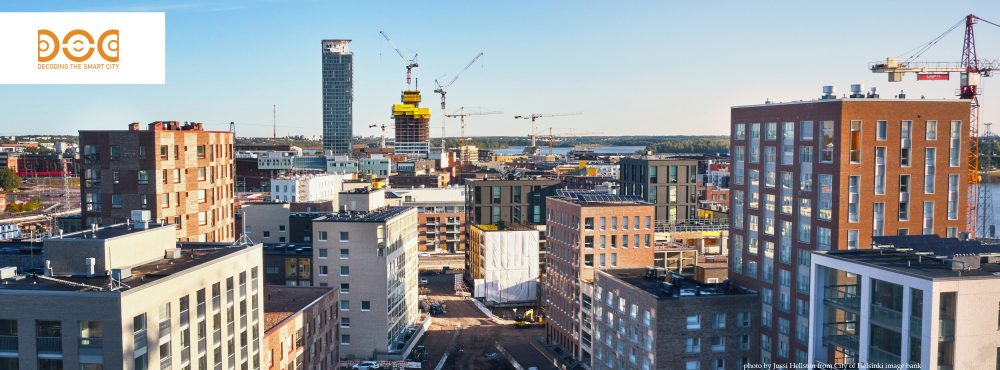Decoding The Smart City workshop will be held online in conjunction with the NordiCHI 2020 conference on October 26, 2020, at 12.00-17.00 pm Eastern European Time(EET). Full conference schedule.
The day-long workshop will focus on the assessment of different types of impacts of smart city projects. The workshop, planned for a maximum of 20 participants, will include space for discussion and brainstorming, as well as experimental activities based on scenarios. These scenarios will include topics drawn from the participants’ position papers as well as real-life data gathered from current smart city projects. Workshop activities will centre on ideating what Johnson et al. (2014) refer to as “method mixes” to evaluate smart city projects. This approach recognizes that prescribed research methods are rarely a perfect fit, and that user insights are more effectively obtained when different methods are mixed based on experience and context. Using real-life cases, we will invite participants to reflect on method mix usability and reliability, and to use creative tools like scenario building and journey maps to communicate their strategy clearly.
Session one:
Presentation: Overview of smart cities and related issues (Teija Vainio and Elise Hodson, Aalto University)
Activity: My position on a position paper. In small groups, participants will review, present, and discuss position papers submitted by other participants.
Presentation: Case study 1 – Smart Kalasatama (Michel Nader Sayún, Aalto University/Forum Virium Helsinki)
Presentation: Case study 2 – FinEst Twins (Ralf-Martin Soe, TalTech)
Activity: Guided group discussion
Fishbowl discussion with prepared questions about the evaluation of smart cities. Current issues of concern for smart cities will be framed in relation to the workshop theme of assessing impact, such as: inclusivity (how to define and involve stakeholders), authority and agency (role of government, legislation, surveillance), privacy, open data, sustainability, flexibility and resiliency to change and crisis.
Session two:
Workshop: Setting scenarios
Participants will be divided in small groups. Each will be provided with scenarios that include a social, geographical and political context, data sets, and the results of research methods that have been applied before. Each group will create an evaluation strategy and method mix for their given scenario taking into account the information provided and themes discussed in the morning.
Presentation: Workshop results
Each group will prepare a three-minute presentation in video format to capture their assessment methods, indicators and expected outputs. Groups will receive guidance on how to script and create a simple video in the time allotted. We will watch the videos together and discuss. The videos will also serve as a lasting record of the workshop for all participants.
Conclusion: Wrap-up discussion and next steps on publication
After the workshop:
We will compile an open-source publication documenting the workshop process and results, and including papers by participants, reviewed by the advisory committee.

